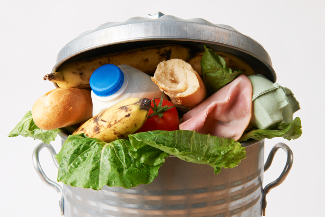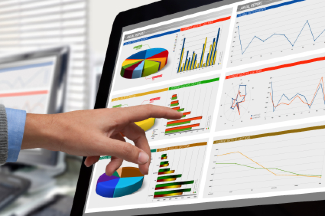Member State Page : Latvia
Last updated on the 29/09/2023

In total: 245 422 of food waste in 2021


Target
Latvia set the target to reduce food waste by 30% by 2025 and to reach a 50% reduction by 2030 (as compared to the 2022 baseline) in its national food waste prevention programme (2021-2028).
Measure
In 2019, a national methodology for measuring food losses and food waste was developed, including provisions for food business operators and for households. Handbooks for food waste measurement have been developed for enterprises and for households.
There have been a number of studies previously conducted in order to determine the different types of waste, including food waste, such as the study ‘Assessment of food waste management generated by food production and catering companies in Latvia’ and the study ‘Assessment of composition of municipal, hazardous and industrial waste in waste management regions, management of specific waste streams and possibilities to decrease landfilled amounts of waste.’
Data obtained by the Central Statistical Bureau of Latvia indicate that the highest share of household waste consists of food and other biodegradable waste, constituting 41% of the generated municipal waste.
Act
Latvia put in place a food waste prevention programme (2021-2028), developed within the framework of its national waste management plan (2021-2028), which foresees the following measures:
- to improve the food donation system (changes to the regulatory framework; development of food donation guidelines; a study to evaluate the operations of food banks; campaigns to promote food donation etc.);
- to prevent food waste;
- to raise awareness and inform about food waste (establishing dialogue and agreements with producers, processors, and traders on the obligation to reduce food waste; promoting good practices in food waste prevention etc.);
- to measure and monitor food waste levels;
- to support research and innovation aimed at reducing food waste.
Food loss and waste prevention actions have been integrated in the action plan for the transition to a circular economy (2020-2027) and the topic has also been included in the national development plan (2021-2027), the strategic plan of the future common agricultural policy (CAP) and the sustainable development strategy of Latvia until 2030. The strategy for the achievement of climate neutrality by 2050 offers direction for action regarding sustainable consumption and production, by applying the principle ‘no waste, only raw materials’, in order to encourage the effective use of resources throughout the product life cycle and to ensure that resources return in the circular economy. Food business operators are encouraged to cooperate in their use of resources through industrial symbiosis solutions, as well as industrial clusters. The strategy will be implemented through shorter-term plans, including through the national energy and climate plan (2021-2030), which introduces a series of related measures to improve the management and reduction of food waste (e.g. actions to change consumer behaviour; development of educational materials etc.).
All measures to reduce food waste are in line with the principles of the food use hierarchy.
In order to facilitate the redistribution of food past the ‘best before’ date, Latvia has adopted additional rules through the Cabinet Regulation No 514 of 11 August 2020. The regulation includes indicative timeframes for specific food categories past their minimum durability dates, which may be donated to charities, persons registered in the Register of Social Services, municipal social services or directly to the final consumer. Through the Cabinet Regulation No 145 of 17 March 2020, additional rules were adopted to facilitate the donation of poultry eggs and food of animal origin, allowing more flexibility for retailers who wish to donate such products. Food of animal origin intended for donation may only be received by charitable organisations, as well as by religious organisations and their institutions that carry out charitable actions and are registered with the Food and Veterinary Service as food businesses.
With the aim to prevent food losses and allow the use of former foodstuffs as animal feed, amendments were made to the Cabinet of Ministers Regulation No 730 of 30 June 2009 ‘Procedures for registration and recognition of an enterprise involved in the animal feed circulation’.
A number of projects, funded through the European Innovation Partnership (EIP) for agricultural productivity and sustainability, are being implemented to promote the optimal use of natural resources, including food products, through the use of raw local materials or the development of new by-products from food processing. Information about these projects can be found on the website of the Ministry of Agriculture.
Several awareness-raising initiatives on food waste have been organised in Latvia. In 2019, the Ministry of Environmental Protection and Regional Development carried out the ‘Discarded is not gone’ campaign, to inform and educate families about their waste generation. The main activities of the campaign included the launch of dedicated a website, a Trash Diary for first graders to keep track of the household waste of their families, and videos with recipes that use leftovers. The campaign was preceded by a survey on consumers’ shopping, sorting, food use and disposal habits. The study concluded that households in Latvia waste food worth 200 euros annually. The causes for discarding food are diverse – most often products start to spoil or are expired; buying too many food products; leftovers and unsavory foods are also discarded.
The website of the Ministry of Agriculture contains explanatory information regarding the meaning of date marking (‘use by’ and ‘best before’ dates).
Educational and informative measures are implemented through the EU school scheme program, in order to improve pupils’ knowledge about agriculture and food production, seasonal and regional products, the local food chain and the fight against food waste, healthy eating habits and lifestyles. The project ‘Global learning approaches on food waste in non-formal education’ carried out by the non-governmental organisation Green Liberty aims to fill in the information gaps as regards food waste and its link to climate change; to raise awareness on the interdependencies of food supply chains at international level; and to promote food waste prevention skills in households. The project's target groups are young people, households, and civil society activists interested in sustainable consumption issues.
Relevant resources
Links
